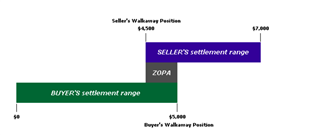MIST was approached by a publically traded spinal instrumentation company, and we are meeting with them soon to discuss development in our device. We really have no experience aside from a few audited Darden classes on negotiations, and would really appreciate if someone could give us or anyone else a crash course on it?


